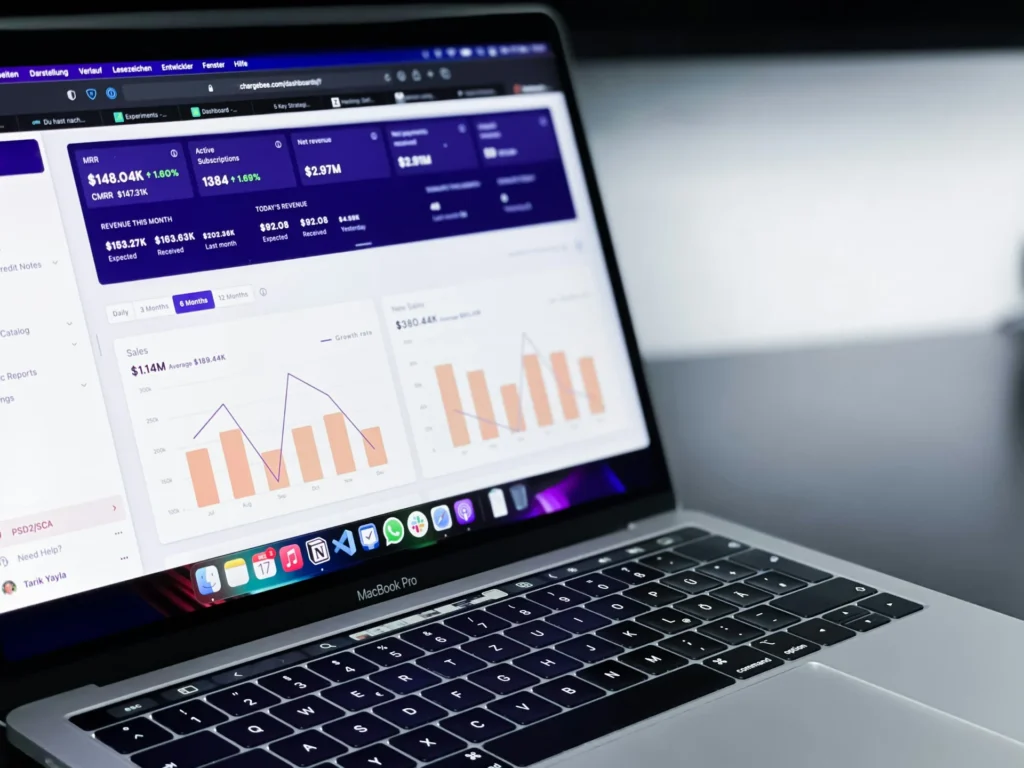Local SEO has become a vital strategy for businesses aiming to connect with nearby customers. Understanding why local SEO matters is essential because it directly influences how and when a business appears in local search results. Unlike general SEO, local SEO focuses on geographic relevance, which can drive immediate customer action like store visits or calls. With the rise of mobile devices and voice assistants, more people expect quick, location-based answers. Consequently, businesses that optimize locally gain a significant advantage in attracting ready-to-buy consumers. This blog will explore the critical reasons why local SEO should be a priority for any business in 2025 and beyond.
The way people search for local products and services is evolving rapidly, making local SEO increasingly important. Search engines now emphasize not just relevance, but also proximity and credibility when ranking businesses. As algorithms grow smarter, businesses must keep up by maintaining accurate information and engaging content. Moreover, local SEO helps companies build trust and foster real community connections. These factors contribute to better visibility and sustained growth in competitive markets. By the end of this article, readers will understand the core reasons why local SEO matters and how to leverage it effectively.
What Makes Local SEO Different and Why It’s Critical for 2025
Local SEO differs from traditional SEO by focusing on location-based search results that connect businesses to nearby customers. It helps businesses appear in results for terms like “near me” or specific city-based services. This distinction is essential for businesses that rely on physical locations or defined service areas. As digital habits evolve, understanding why local SEO matters becomes a critical component of a winning SEO strategy. In contrast to broad SEO campaigns, local SEO pinpoints users ready to take immediate action, like visiting a store or booking a service. This intent-driven traffic makes the return on investment much stronger.
As search technology becomes more personalized, local SEO aligns more closely with how people use devices today. Search engines prioritize content that is both relevant and geographically accurate. This means optimizing content with local keywords, service areas, and up-to-date location information. Moreover, voice search and AI-powered tools increasingly rely on precise local data to deliver answers. These developments show why local SEO matters in 2025 and beyond, as it ensures businesses stay competitive in smart search ecosystems. Without local optimization, businesses risk being invisible to nearby consumers.
Local SEO also helps small and mid-sized businesses level the playing field with larger national brands. Instead of trying to rank for competitive broad keywords, businesses can focus on dominating results in their neighborhoods or cities. This strategy builds a stronger local presence and brand authority in specific communities. Search engines like Google reward this relevance with higher rankings in local packs and map results. See more of Local SEO do’s and dont’s to have a sustainable traffic channel that doesn’t rely solely on ads. That consistent visibility is one more reason why local SEO matters.
Maximizing Google Business Profile to Win Local Customers
A well-optimized Google Business Profile is a cornerstone of any local SEO strategy, that’s why it is a must to learn how to set up Google My Business properly. It serves as a business’s digital front door, showing up prominently in Google Maps and local search results. This free tool offers critical NAP information such as your name, address, hours, phone number, and customer reviews. When kept accurate and complete, it builds trust with both search engines and customers. This visibility is one key reason why local SEO matters to small businesses trying to increase foot traffic. A robust profile leads to more engagement and higher conversion rates.
Regular updates to the profile signal to Google that the business is active and trustworthy. Adding new photos, answering questions, and responding to reviews are small actions that have big impacts. These tasks also improve the user experience by making it easier for customers to choose a service provider. Features like booking buttons, direct messaging, and service lists help businesses stand out. Because the profile is integrated directly into search results, it often becomes the first impression potential customers see. That makes it essential to understand why local SEO matters in managing this asset.
Another benefit of an optimized Google Business Profile is that it supports other local SEO signals. When the information matches data across the web, it reinforces credibility and improves ranking. Google considers consistency across platforms as a ranking factor for local results. Therefore, using the profile as a foundation helps businesses tie their local SEO efforts together. As algorithms grow smarter, the role of structured, verified business information will only increase. Businesses that maintain their profiles diligently will see continued growth in visibility.

Building Community Trust Through Local SEO Engagement
Establishing trust with a local audience is key to long-term success, and local SEO provides the tools to do just that. When a business’s online presence is consistent, it signals reliability and professionalism. Accurate contact details, customer reviews, and updated content help create this digital credibility. Engaging with reviews—both good and bad—shows that a business listens and cares. These interactions shape public perception and influence buying decisions, reinforcing why local SEO matters in online reputation management. Trust built online often translates directly to increased real-world loyalty.
Creating locally relevant content deepens connections with the target audience. Blog posts, social media updates, and optimized landing pages that reflect local news or events show community involvement. When businesses demonstrate awareness of what’s happening in their neighborhoods, they become more relatable. This kind of engagement not only attracts attention but also boosts local rankings. Search engines reward content that aligns with geographic intent, which is another reason why local SEO matters. It’s about meeting customers where they are—both physically and emotionally.
User behavior also impacts local search rankings, particularly how people interact with a website. When visitors spend more time on a page, click through to services, or complete contact forms, those actions send positive signals to search engines. This behavioral data through consumer behavior research helps Google understand which businesses are truly providing value. That value builds over time and leads to higher rankings and more visibility. Businesses that consistently engage their audience with high-quality local content tend to rise above the competition. This continuous cycle of interaction and trust is core to why local SEO matters.
Local SEO in the Age of Mobile and Voice Search
The shift to mobile search has made local SEO more important than ever. Most consumers now use smartphones to find nearby businesses, especially when they need quick solutions. A fast-loading, mobile-friendly website is crucial for keeping these users engaged. Local SEO ensures that the content is accessible, accurate, and optimized for mobile browsing. This accessibility is one reason why local SEO matters in delivering a strong user experience. Without it, even the best businesses may go unnoticed by mobile users.
Voice search is another game-changer, as people increasingly use smart assistants to find local answers. Questions like “What’s the best bakery near me?” require businesses to have content optimized for conversational keywords. Structured data and FAQ-style pages help search engines pull the right information quickly. When businesses adapt their content to match how users talk, they gain a competitive edge. This is another reason why local SEO matters: it makes businesses easier to discover in voice-driven environments. As voice technology evolves, local relevance becomes even more critical.
Technical elements like schema markup, click-to-call buttons, and fast page speeds all contribute to mobile and voice search success. These backend optimizations work together to improve visibility and usability. Google looks at these factors when determining which businesses to feature in mobile and voice results. Businesses that ignore them risk losing a large portion of their potential audience. As AI continues to shape how search works, staying optimized for mobile and voice will remain vital. Embracing these tools highlights why local SEO matters for modern digital engagement.
Essential Ranking Factors That Shape Local SEO in 2025
To perform well in local search, businesses must understand what Google looks for when ranking results. The three core elements are relevance, distance, and prominence. Relevance means how closely a listing matches the user’s query, while distance measures proximity to the searcher. Prominence considers how well-known a business is through backlinks, reviews, and citations. These SEO ranking factors evolve, but their foundation stays rooted in user satisfaction, which is why local SEO matters. Knowing what drives rankings helps businesses make informed decisions.
Online reviews play a major role in how businesses are perceived and ranked. A steady stream of positive, authentic feedback increases visibility and trust. Review signals also indicate that a business is active and responsive to customer needs. Similarly, consistent local citation listings across platforms build a strong digital footprint. Discrepancies in Name, Address, and Phone Number (NAP) data can confuse both users and search engines. That’s why local SEO matters—accuracy and trust go hand in hand with performance.
Another major factor is link building from reputable local sources. Mentions in community blogs, news outlets, or business directories boost domain authority. These links signal relevance and help search engines confirm that the business serves a specific location. Structured data markup also enhances search results with rich snippets like star ratings or operating hours. Businesses that implement these ranking factors strategically will dominate their local markets. Mastering these details is a clear example of why local SEO matters today and in the future.
Wrap Up
Local SEO is no longer optional for businesses that want to thrive in today’s digital landscape. Understanding why local SEO matters enables companies to attract customers who are ready to take immediate action nearby. By focusing on relevance, accuracy, and engagement, businesses can boost their visibility in local search results and build lasting trust within their communities. The rise of mobile and voice search further underscores the importance of adapting strategies to meet evolving user behaviors. Avoiding common pitfalls and embracing best practices ensures long-term success and stronger connections with target audiences. Ultimately, mastering local SEO empowers businesses to stand out and grow sustainably in competitive markets.
For those seeking expert guidance to harness the full power of local SEO and digital marketing, professional support can make all the difference. Partnering with a trusted agency provides tailored strategies that drive measurable results and elevate local presence. If expert assistance sounds appealing, reaching out to a premier New York digital marketing agency can be the next best step. They offer comprehensive services to develop and implement winning campaigns designed to increase engagement and conversions. Don’t hesitate to take advantage of a free consultation to explore how a customized social media and local SEO plan can benefit any business. Contact the team today by phone at 855-347-4228 or via email at hello@fishbat.com to start turning local searches into loyal customers.


